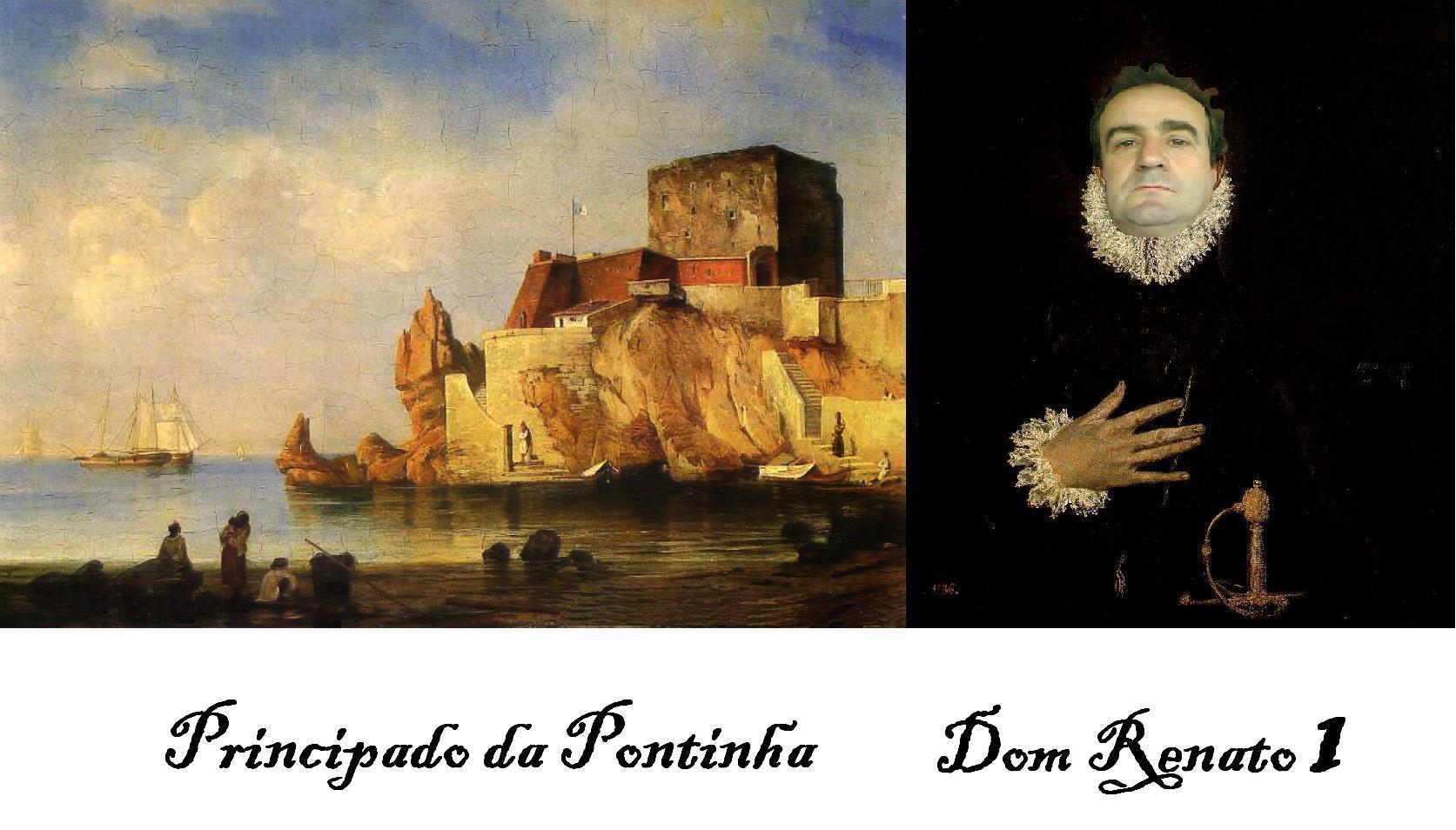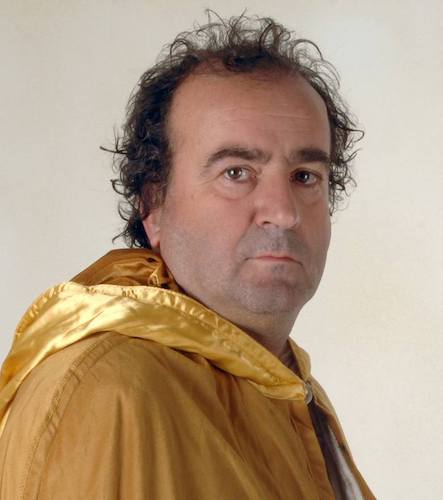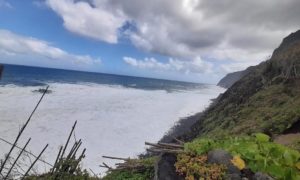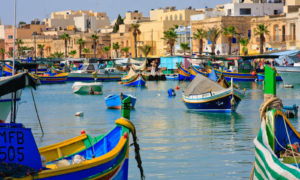(Editor’s note: This post has been updated with news about Liberland, a new micronation.)
By BETH HOKE
As tourists disembark from the massive cruise ships that anchor in Funchal’s bustling harbor and stroll into town for the day, they pass a small nondescript islet.
Known as the Principality of Pontinha, this is a tiny bit of land that does not require a passport to enter, does not collect taxes from its “residents” and produces its own energy from 100-percent renewable sources.
Dom Renato de Barros I is one of a growing number of “founding fathers” who have purchased or otherwise acquired a physical territory and claimed sovereignty based on the intricacies of international law.
Less than one hundred meters from Madeira and connected via a short causeway, this islet was discovered by Portuguese explorers João Gonçalves Zarco and Tristão Vaz Teixeira in 1419. Forte de São José (the islet’s only structure) was constructed by Francesco Tosi Colombina in the mid-18th century.
In 1903, the King of Portugal, Dom Carlos I, sold the island and granted sovereignty to the new owners, whose descendants later sold the property to the current owner and self-declared prince, Dom Renato de Barros I.
Dom Renato is, to say the least, an interesting character.
Here’s what we could glean from the Internet:
• On the official Principality of Pontinha Facebook page, Dom Renato lists his interests as “freedom, independence and autonomy.”
• He bought the island in 2000, but didn’t declare it a sovereign state until 2007, according to the Wikipedia entry.
• In December 2015, the principality became the first country in the world to adopt Bitcoin as the official currency.
• Apparently, Dom Renato has a long-running dispute with the Portuguese government. The local government only agreed to sell him electricity if he sold his principality back to Portugal. When he refused, they denied him power. He retaliated by installing solar panels and a wind turbine, becoming only the fourth nation to be powered by 100-percent renewable energy.
• If you desire a personal audience with His Royal Highness Dom Renato, you must request it by e-mail. (Try that With Queen Elizabeth II or Pope Francis.)
• There is a movie, “Sovereign Dream,” which tells his story. (See the trailer below.)
Surprisingly, the Principality of Pontinha is part of a trend. There are at least a dozen micronations around the world from the Principality of Sealand to Christiania.
Though referred to as micronations, these nation-states are not defined by size, but rather the fact that their status as a country is not recognized by world governments or major international organizations.
Most are small, carved out of land forgotten or neglected by surrounding countries. Others, like the Dominion of British West Florida in North America, cover large swaths of territory. According to the authors of the Lonely Planet book, Micronations, the self-proclaimed rulers of these nation-states have motivations ranging from “theoretical experimentation, political protest, artistic expression, personal entertainment” to criminal activity.
In the news this week is the micronation of Liberland. The Washington Post has a story about its founder, Vit Jedlicka, and some of his “citizens” coming to President Donald Trump’s inauguration this weekend, looking for American support for his ideals. Liberland is the first libertarian “country” carved out of a piece of land ignored by neighbors Serbia and Croatia.
From the WaPo post:
Liberland has its own flag, constitution, national anthem and motto — “To Live and Let Live” — and it has been the subject of widespread international attention since it was first announced. The fledgling government has seen hundreds of thousands of people sign up for potential membership, including more than 12,000 Americans. The country recently named Thomas Walls, a U.S. citizen, as its foreign minister.
Though many micronations are on physical land masses, Russian businessman and scientist, Igor Ashurbeyli, recently proposed the creation of a space nation to promote peace in outer space.
The chairman of UNESCO’s Science of Space committee, Ashurbeyli understands the importance of applying to the United Nations for official recognition of his proposed nation, Asgardia, as an independent state. Registration for citizenship took place on Asgardia’s website with residents of countries around the world clamoring to be part of this space community.
Lovely, a nation created by British comedian, Danny Wallace, as part of the BBC documentary, How to Start Your Own Country, existed only in Wallace’s London flat. Talossa, thought to be one of the first micronations, existed only in the bedroom of 14-year old Robert Ben Madison, who claims to have coined the term micronation in 1979.
Some micronations have only a symbolic presence on the Internet, such as Wirtland, which represents itself in a 2008 press release as an “internet-based sovereign country…without its own soil.” Its citizens, or “witizens” as they are known, have state-issued identification cards and are governed by a parliamentary democracy and constitutional monarchy.
So, what implications does this concept have for expats?
Unfortunately, though you can become a resident of many of these micronations – some even issue passports – hassle-free travel through countries recognized by world governments or international organizations such as the United Nations is unlikely.
ABOUT THE AUTHOR
Beth Hoke is rejoining the expat life after spending her childhood in Europe and the United States, then settling in Chicagoland to raise two daughters.
Now an empty nester, she is roaming Europe, armed with a TEFL certificate and an online position teaching English for EF.
















